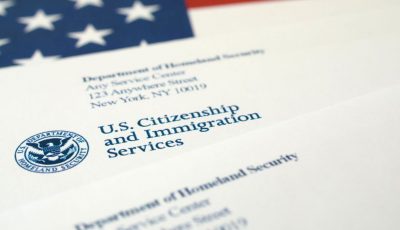Kilili: No more business as usual
Congressman Gregorio Kilili Camacho Sablan appealed to the Commonwealth government to use all tools available to address the workforce crisis in the Northern Mariana Islands. On Saturday, U.S. Citizenship and Immigration Services announced that the Marianas reached the numerical cap on the number of foreign workers allowed under the CNMI-Only Transitional Worker (CW-1) visa classification. For this fiscal year 2016-2017 beginning October 1, the cap is 12,998. USCIS will reject CW-1 petitions that were received on or after October 15, 2016 and that request an employment start date before October 1, 2017. This includes both new CW-1 employment petitions and petitions for extensions of stay that are subject to the cap.
“We reached the cap for the previous fiscal year just last May, and that caused disruption to our economy, especially local businesses that rely on their long-term workers for operations. It also caused significant stress to the affected workers, and their families,” Sablan said.
“So I was grateful when the Department of Homeland Security and USCIS decided to consider deferred action as a limited, one-time opportunity for humanitarian relief for certain qualified workers who were affected by the cut-off in permit renewals last May.
“But here we are, again. Innocent people who have lived and worked here for years will be hurt, again. Local businesses that depend on these workers will also be hurt, again. It is a terrible situation. It is especially terrible because it could have been avoided,” Sablan said.
“The information I have received from Governor Torres’ administration and from leading business organizations is that thousands of these limited CW slots are once again being filled by new workers brought in by new developers for temporary construction jobs.
“Governor Torres has asked these developers to hire construction workers through the H visa program, which is not subject to caps in the Marianas. However, it appears that unfortunately, these developers did not heed his requests.
“And, as far as I know, the Commonwealth government did not make it a condition of their permits or licenses that these new developers use H visas for construction work, and only apply for CW permits if absolutely necessary,” Sablan added.
On top of this, the Commonwealth government granted waivers that allowed some new investors to bypass the local law that requires at least a 30 percent U.S. workforce. This means that about 1,800 jobs that should have been set aside for U.S. workers went to foreign workers instead and used up another 1,800 CW permits. Some of the exemptions issued by the CNMI Department of Labor are for up to two years, and would affect next fiscal year’s CW cap, as well.
“I am not in the practice of telling our Governor or our local Legislature what to do. But if I were in their position, I’d tell these new investors, ‘You have to withdraw all your pending applications for CW construction workers right now and apply for H visa workers instead.’ And if I were in the Governor’s shoes, I’d overrule the CNMI Department of Labor and withdraw all of those waivers of the 30 percent local hire law,” Sablan said.
According to USCIS, CW petitions may be withdrawn as long as they are pending. About 6,000 CW petitions are still under review by the agency.
Meanwhile, the Congressman said his efforts continue in Washington to find legislative solutions to the workforce crisis in the Northern Marianas.
“In July, I introduced legislation mirroring the Governor’s 902 proposal on how to address our workforce needs beyond 2019. And, for the next Congress, we have our eye on comprehensive immigration reform.
“So much depends, though, on the mood in Congress to tackle immigration, and who wins the presidential race. Mrs. Clinton has promised to make comprehensive immigration reform a priority in her administration. I can work with a Clinton administration to make sure the needs of the Marianas are included in any national reform package.
“But legislation is often described as the ‘slow boat.’ Few things happen quickly in Congress. Decisions can be made much more quickly and nimbly at the local, administrative level.
“The CNMI government has the power to regulate businesses, lay out plans, and determine the conditions under which permits and licenses may be granted. I appeal to Governor Torres to use all the tools available to him to manage development in the Marianas, and to minimize harm especially to long-term businesses and workers who have vested so much in our community,” Sablan said.
“We can’t keep doing business as usual.”
The Consolidated Natural Resources Act of 2008 extended U.S. immigration law to the Northern Marianas and provided the special CW category of foreign workers for the islands during an initial transition period of five years. That initial period was extended through 2019 by Public Law 113-235. The CW program began with a cap of 22,417 in 2009, and must reach zero by 2019. (PR)



























